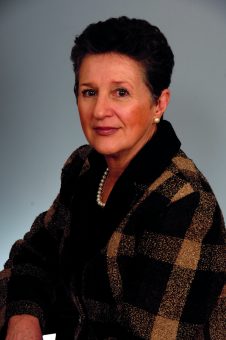
Milka Drezgic, Professor of Internal Medicine at the Faculty of Medicine, the Belgrade University
The advancement of preventive medicine, diagnostics, and therapies, as well as technological breakthroughs in the 20th century, contribute to a better understanding of health and disease on a genetic, molecular and cellular level. Along with the longer life expectancy, achieving the optimal human health becomes a special goal. We talked to professor Milka Drezgic, M.D, in an attempt to get an answer to the question that is puzzling each one of us: do we take care of our health in a proper way?
Professor Drezgic is a renowned scientist and excellent expert, internist, endocrinologist, with a corpus of 308 scientific articles and teaching materials and to our readers, she explains the significance of this vital issue in simple words. There is no doubt that health is an intricate term, and what exactly it implies nowadays we asked professor Drezgic.
Milka Drezgic: Freud bore down that the moment a man asks himself whether there is a meaning of life, he becomes sick. As determined by the World Health Organization (WHO), health is a state of complete physical, mental and social well-being, not just an absence of diseases and enervation. It’s important here to define what social welfare is according to WHO. That would be a state of peace and security where every person regardless of religion, race, political conviction, economic conditions and gender has a right to education and work, and that gives him the opportunity to live harmoniously in a healthy environment and provides protection in sickness, enervation, and old age.
However, having in mind today’s life circumstances and all that is happening to us, it is entirely reasonable to pose a question if there is a healthy person at all and who meets the criteria for social welfare.
EP: This means that the health of any individual or the one of the whole nation should be considered in light of the interaction with the environment because the health is not just a biological phenomenon.
Milka Drezgic: Various scientific disciplines, such as biology, psychology and sociology, have their own apparent and distinct concepts which serve as a starting point in the process of defining health and diseases. Societal value criteria, predominant culture and philosophy of social units in specific periods of human history and in some territories also had a significant influence on how the health and disease were perceived.
Social medicine is as a science that examines the health of an individual in reference to his interactions with an environment. The development of social medicine has also brought a definition of health which takes health not only as a biological and psychological but also as a social phenomenon. The World Health Organization (WHO) defined human health in a broader sense in its 1948 constitution having underlined for the first time the social element as of great importance.
I want to point out that the civilisation and the life rhythm come with a substantial risk which is reflected in chronic stress. It is not manifested in apparent physical changes but in the form of mental exhaustion which leads to depression, mental disorders, reduced working ability and problems in family and social life.

EP: How to deal with the exhaustion syndrome?
Milka Drezgic: Just as we take care of our body’s hygiene, we have to take care of our mental hygiene which is necessary to lead the quality life. Fromm said a long time ago that a healthy man was able to work and love, so we must learn to love ourselves, to observe the world around us, and we have to learn how to enjoy in each day of our life, and not to dwell upon an uncertain future or a pleasant past.
EP: Who has the supervision of whether we are physically and mentally ready to deal with everyday life problems?
Milka Drezgic: Starting from the birth, the watchful eye of parents and routine check-ups of babies, and later toddlers, at primary health care, stand as the leading method for monitoring of the physical and mental development of the child. Parents and doctors have a prominent role as they react to every sign and symptom which might indicate the onset of the disease. However, it is not rare that a parent leaves a child in front of ‘the lord and master’ in the house, namely the TV, and therefore he doesn’t communicate enough with his own child, only to reveal that his toddler at the age of two is deaf, which is precisely what happened recently in one city in Serbia. Unfortunately, by the time children grow up and enter adolescence, there are even fewer check-ups, or they are not carried out thoroughly, which ends up recognising mainly the physical defects in young people. On the other hand, the information and even interest in the mental and emotional social welfare are lacking.
Read the whole interview in the new issue of the Energy portal Magazine on SUSTAINABLE ARCHITECTURE, July 2018.
Interview by: Milka Zelić



